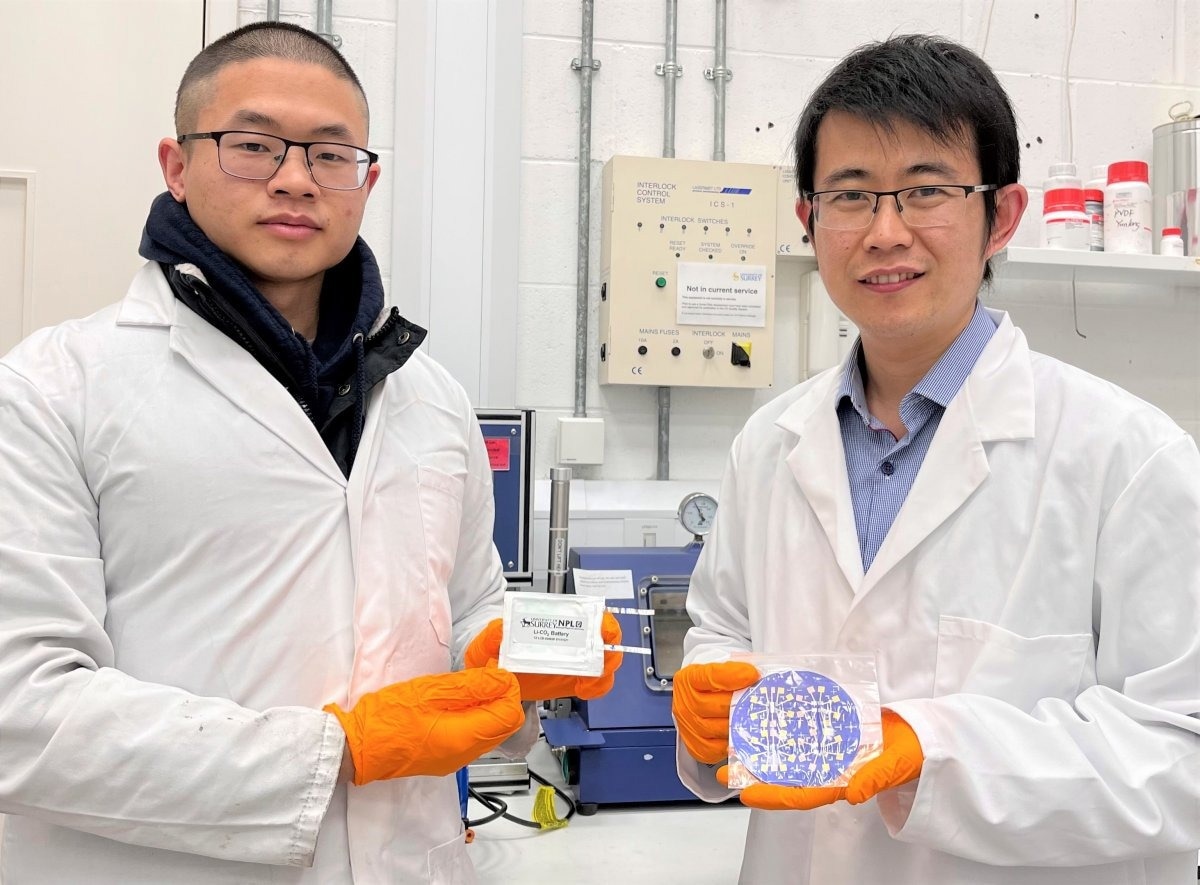Thanks to support from the Faraday Institute, lithium-based batteries that have the potential to capture carbon dioxide to help store energy are being developed and manufactured by the University of Surrey.
 Yunlong Zhao (right) and Kai Yang (left) showing on-chip and single layer pouch cell Li-CO2 battery. Image Credit: University of Surrey.
Yunlong Zhao (right) and Kai Yang (left) showing on-chip and single layer pouch cell Li-CO2 battery. Image Credit: University of Surrey.
Such lithium-CO2 batteries possess a theoretical energy density of 1800 Wh/kg, which is considerably greater compared to that of lithium-ion battery systems that are already commercially available. This implies lighter batteries or more capacity for the same weight, which have possible advantages throughout industrial applications.
We are incredibly excited about lithium-CO2 battery technology, which has the potential to revolutionize the energy storage industry and move us ever closer to reaching net-zero emissions. With the help of our bespoke fabrication platform, we can design and manufacture practical lithium–CO2 pouch cells that eliminate the problems these batteries have faced in the past.
Dr. Yunlong Zhao, Project Lead, University of Surrey
Present designs of lithium-CO2 batteries tend to undergo significant ineffectiveness resulting in electrolyte leakage and evaporation. The research team from Surrey is suggesting developing and producing lithium-CO2 batteries along with valve-regulated sealed “pouch” cells to resolve such issues.
This work to enhance batteries is considered part of Surrey’s extensive research to handle the difficulty of viable energy generation. The huge range of the University’s work in this field consists of research into next-generation solar panels, supercapacitors, biofuels, wearable nanogenerators, nuclear fusion, and more.
If we are serious about living sustainably and nursing our planet back to health, there needs to be a fundamental shift in how the general public, not just the science community, views energy storage.
Dr. Yunlong Zhao, Project Lead, University of Surrey
Zhao added, “While our lithium- CO2 battery technology has the immediate and obvious potential to be used in next-generation electric vehicles, we also believe that this technology could be used in future intermittent power generation systems—for example, to store wind energy. We all have to think bigger if we are to halt the negative effects of climate change.”
This study is a collaboration between the University of Surrey, Johnson Matthey, and the National Physical Laboratory (NPL).
The Faraday Institution has financially supported the Surrey project as part of its Battery Study and Seed Research Projects.
These novel projects are in areas of application-inspired research that continue to strengthen the UK's position in electrochemical energy storage, and ultimately contribute to making the UK's industry more competitive.
Pam Thomas, Professor and CEO, Faraday Institute